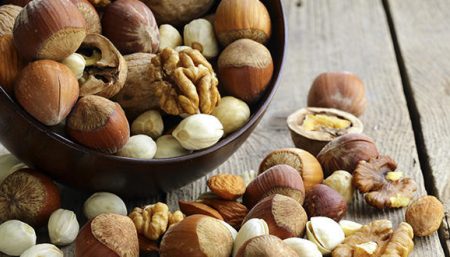
Women who eat at least 100 grams (slightly less than half a cup) of yogurt every day have significantly less plaque build-up on the walls of their carotid arteries.
A new study published on February 15, 2018 by Oxford University Press USA in the American Journal of Hypertension, suggests that higher yogurt intake is associated with lower cardiovascular disease risk among hypertensive men and women. High blood pressure (HBP) is a major cardiovascular disease (CVD) risk factor. Clinical trials including Dietary Approaches to Stop Hypertension (DASH) have demonstrated beneficial effects of dairy consumption on risks of HBP and CVD. Yogurt, a fermented dairy product, may independently be related to CVD risk.
The study incuded 55,898 female Nurses’ Health Study (NHS) and 18,232 male Health Professionals with prevalent HBP.

Another study indicates yogurt consumers had a higher Dietary Guidelines Adherence Index (DGAI) score (ie, better diet quality) than nonconsumers. Adjusted for demographic and lifestyle factors and DGAI, yogurt consumers, compared with nonconsumers, had higher potassium intakes (difference, 0.12 g/d) and were 47%, 55%, 48%, 38%, and 34% less likely to have inadequate intakes (based on Dietary Reference Intake) of vitamins B2 and B12, calcium, magnesium, and zinc, respectively (all P ≤ .001). In addition, yogurt consumption was associated with lower levels of circulating triglycerides, glucose, and lower systolic blood pressure and insulin resistance (all P < .05).
Yogurt is a good source of several micronutrients and may help to improve diet quality and maintain metabolic well-being as part of a healthy, energy-balanced dietary pattern.Compared with nonconsumers, yogurt consumers appeared to have better metabolic profile, such as lower BMI, waist circumference, levels of triglycerides, fasting glucose and insulin, and blood pressure but higher HDL [good] cholesterol. People who eat more yogurt, eat less of processed meat and refined grains. Yogurt eaters eat more fruits, vegetables, nuts, fish, whole grains and other healthy foods, and therefore have higher levels of potassium, vitamins B2 and B12, calcium, magnesium, zinc and other micronutrients.

The study found that:
- Higher intakes of yogurt were associated with a 30 percent reduction in risk of myocardial infarction among the Nurses’ Health Study women.
- Higher yogurt intake in women was associated with a 16 percent lower risk of undergoing revascularization.
- Women consuming more than two servings a week of yogurt had an approximately 20 percent lower risks of major coronary heart disease or stroke during the follow-up period. When revascularization was added to the total cardiovascular disease outcome variable, the risk estimates were reduced for both men and women, but remained significant.
- Higher yogurt intake in combination with an overall heart-healthy diet was associated with greater reductions in cardiovascular disease risk among hypertensive men and women.

These important new evidences indicate that yogurt may benefit heart health alone or as a consistent part of a diet rich in fiber-rich fruits, vegetables, and whole grains
Plain, nonfat yogurt is best.
Ref:
- https://www.ncbi.nlm.nih.gov/
pubmed/23351406 - https://www.sciencedaily.com/
releases/2018/02/180215141722. htm
Disclaimer
The Content is not intended to be a substitute for professional medical advice, diagnosis, or treatment. Always seek the advice of your physician or other qualified health provider with any questions you may have regarding a medical condition.



